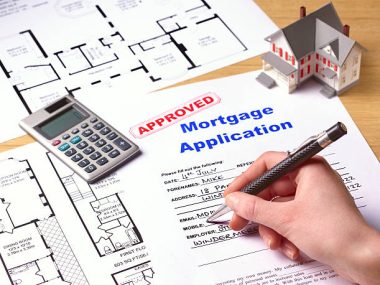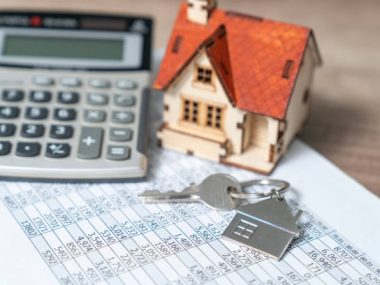When do you stop paying mortgage when selling house? The process of selling a house involves a myriad of financial considerations, among which the timing of mortgage payments cessation holds a crucial place.
For homeowners looking to sell their property, the question “When do you stop paying the mortgage when selling a house?” is both pertinent and multifaceted.
Understanding the intricacies of this timeline is essential for ensuring a smooth transition from ownership to the sale of the property.
This article delves into the various factors that influence when mortgage payments cease during a home sale, including the role of the remaining balance, equity, closing costs, and potential prepayment penalties.
By gaining clarity on these aspects, homeowners can navigate the process more confidently and strategically manage their financial responsibilities throughout the sale of their houses.
Also Read:
What Happens to Your Mortgage During a Recession?
What Is an Open-End Mortgage? (All You Should Know)
When Do You Stop Paying Mortgage When Selling House?
When selling a house, the question of when to stop paying the mortgage is a critical consideration that impacts both financial planning and the seamless transition of property ownership.
The timing largely hinges on several factors, such as the remaining mortgage balance, accrued equity, closing costs, and potential prepayment penalties.
Typically, mortgage payments continue until the property sale is finalized.
At the closing, the remaining mortgage balance is settled from the proceeds of the sale, along with other associated costs.
The accrued equity in the property plays a significant role in determining how much will be left to cover the mortgage.
If the home’s market value has increased since the initial purchase, homeowners might have built substantial equity, which can potentially offset the outstanding mortgage balance.
Moreover, closing costs, including real estate agent commissions, title fees, and transfer taxes, are deducted from the sale proceeds.
The remaining funds are then applied to pay off the mortgage, officially releasing the homeowner from their mortgage obligation.
It’s important to consider potential prepayment penalties, which some mortgage agreements might impose for paying off the loan early.
These penalties can impact the overall financial equation of when to stop paying the mortgage.
Overall, the timing of ceasing mortgage payments when selling a house is intricately tied to factors like equity, closing costs, and contractual obligations.
Understanding these elements allows homeowners to navigate the process strategically and make informed decisions that ensure a smooth transition of ownership while maximizing their financial benefits.
Key Factors in Mortgage Payoff During Home Sale
Mortgage payoff during a home sale is influenced by several pivotal factors that impact the financial outcomes for both sellers and buyers.
One critical factor is the remaining mortgage balance, which directly determines the amount required to discharge the loan.
The accumulated equity in the property plays a vital role as well; if the property’s value has appreciated, the seller’s equity can cover a significant portion of the mortgage balance, affecting the final payment.
Closing costs represent another crucial consideration.
These fees, including real estate agent commissions, title insurance, and administrative charges, are subtracted from the sale price before settling the mortgage.
Depending on the local market and agreements, these costs can substantially affect the amount available to pay off the mortgage.
Furthermore, prepayment penalties, if stipulated in the mortgage agreement, can impact the timing and feasibility of paying off the loan before its designated term.
Sellers must assess whether such penalties exist and how they’ll affect the payoff strategy.
Overall, the interplay of the remaining balance, accrued equity, closing costs, and potential prepayment penalties shape the landscape of mortgage payoff during a home sale.
Sellers should holistically consider these factors to determine the optimal approach that aligns with their financial goals and ensures a smooth transition of property ownership.
Tips for a Smooth Mortgage Transition when Selling
A seamless mortgage transition during the process of selling a house can alleviate stress and financial complications for homeowners.
Firstly, understanding the specifics of your mortgage agreement is crucial.
Familiarize yourself with any prepayment penalties or clauses related to selling. This insight will enable you to plan strategically.
Calculating your home’s equity is paramount.
An accurate assessment of your property’s market value against the remaining mortgage balance aids in determining potential profits or gaps to cover during the sale.
Engage a reputable real estate agent to guide you through pricing your property appropriately.
Incorporate the impending mortgage payoff into your overall budget.
Prepare for closing costs, including agent commissions and administrative fees, which can affect your net proceeds.
Open communication channels with your lender.
Discuss your intent to sell and gather information on the process of mortgage discharge.
This proactive approach ensures you’re well-prepared for the financial aspects of the sale.
Timing is essential. Aim to sell when market conditions are favorable.
This might impact your equity and the ease of paying off your mortgage.
Overall, a smooth mortgage transition while selling a house necessitates a comprehensive knowledge of your mortgage terms, equity evaluation, collaboration with professionals, budgeting, and strategic timing.
Adhering to these tips facilitates a successful sale while effectively managing your mortgage obligations.
Also Read:
What Is a Mortgage Banker? (All You Should Know)
What Is a Mortgage Buyback? (All You Should Know)
Conclusion
In the intricate process of selling a house, understanding when to stop paying the mortgage is a pivotal consideration.
The journey concludes at the property’s closing, where the remaining mortgage balance is settled from the sale proceeds.
Factors such as accrued equity, closing costs, and potential prepayment penalties influence this timing.
By grasping these dynamics, homeowners can navigate the transition with confidence, maximizing financial benefits and ensuring a seamless transfer of property ownership.
Ultimately, informed decisions regarding mortgage payoff timing play a vital role in achieving a successful and stress-free home sale experience.






